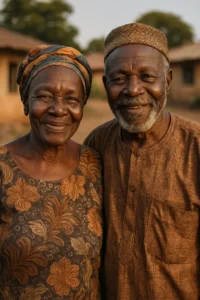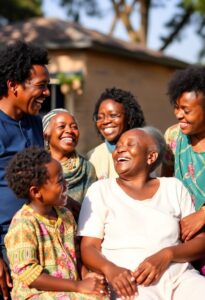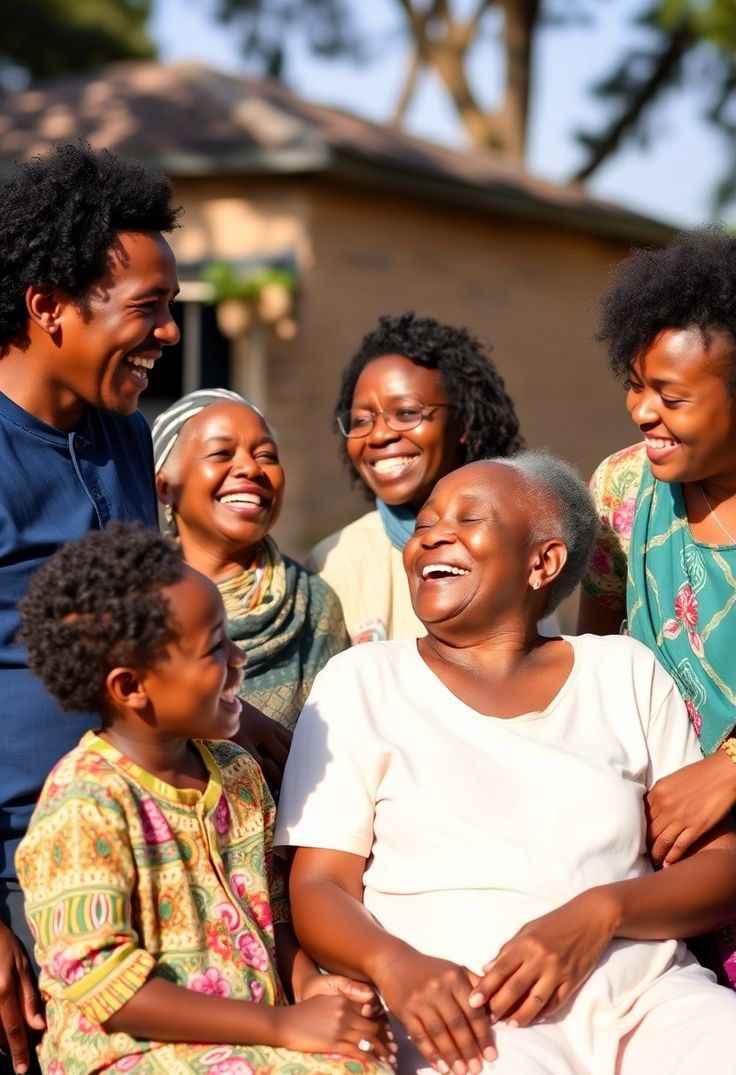Her mother never asked for much.
Just a phone call when she got home.
A text when she landed.
Hot water in the mornings. Socks when it’s cold.
A check-in. A “how are you?” A sign she still remembered.
For years, she was busy — work, deadlines, flights, kids, rent, life.
And when her mother would call, she’d often say, “I was just about to call you.”
A kind lie — but a lie nonetheless.
African parents don’t always say “I miss you.”
They say, “When are you coming home?”
They ask if you’ve eaten.
If you’re still using that cream.
If your still going to church and saying your duas.

The reality is, many African children — especially those in the diaspora — live in a kind of emotional exile.
Caught between independence and inheritance.
Gratitude and exhaustion.
Love and distance.
And too often, our parents age quietly in the background — while we’re busy trying to become the people they raised us to be.

💭 So how do we love them while they’re still here?
Not just performatively — not only at birthdays or during crisis.
But deeply. Quietly. Consistently.
In a way that honors our culture but makes space for vulnerability too.
Here’s how:
✅ Call them. Without needing a reason.
Not just on Mother’s Day. Not when you need something.
Call during laundry. Before bed. While making breakfast.
Let the conversation drift. Let them speak in full sentences. Don’t rush them.
✅ Send money — but more importantly, anticipate the need.
African parents will say “we’re managing” even when the generator is broken and the tiles are lifting.
Offer before they ask.
Top up without being prompted. Pay for the medication they’ll never tell you they need.
✅ Ask about their lives before they became parents.
What did they dream of? Who was their first love? What did they lose to raise you?
Let them be human. Not just providers.
✅ Go home — not for a funeral. Not for Christmas or Idd.
Go home just to sit in the living room.
To watch them peel yam. To laugh. To belong.

✅ Teach them your world.
Show them how to use Google Pay.
Translate TikToks. Explain your job again, even if they still don’t get it or if they forget.
Let them feel included, not outgrown.
✅ Record them.
Take their photo when they’re not looking.
Capture their voice. Archive their stories.
✅ Affirm them.
Many African parents carry silent guilt — for the years they were too tired, too strict, too poor, too absent.
Tell them: “You are the best.”
Let that sentence be their reward.
🌺 Don’t wait for the funeral to say the things that matter.
In too many families, love is loudest in death.
But what if it didn’t have to be?
What if we loved our parents while they were still able to receive it — not through ceremony, but consistency?
Before they become memory.
Before we regret not saying more.
Before the grief arrives wearing their perfume.
So call.
Show up.
Say thank you.
Take the video.
Be present.
Because loving our parents — while they’re here — is a sacred act of remembrance in real time.
And if you’re lucky enough to still have them?
Don’t wait to know what missing them will feel like.
— Living Africana Team












